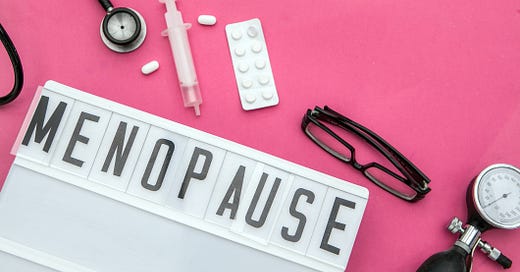I am a 57 year old female who had a hysterectomy 17 years ago. My doctor says that my hormone levels do not indicate that I am in menopause. I find that hard to believe.
Short Take
You are almost certainly menopausal and blood work to tell whether you are or are not is not indicated.
Tell Me More
Menopause starts with the final menstrual period or FMP. As you can’t tell if it is your final period until some time has passed so you are sure it is your final one, medically we say menopause has occurred when you are one year from your final menstrual period.
Okay, that’s great, but what if you have had a hysterectomy?
Keep reading with a 7-day free trial
Subscribe to The Vajenda to keep reading this post and get 7 days of free access to the full post archives.




